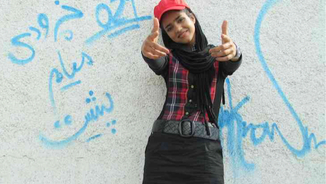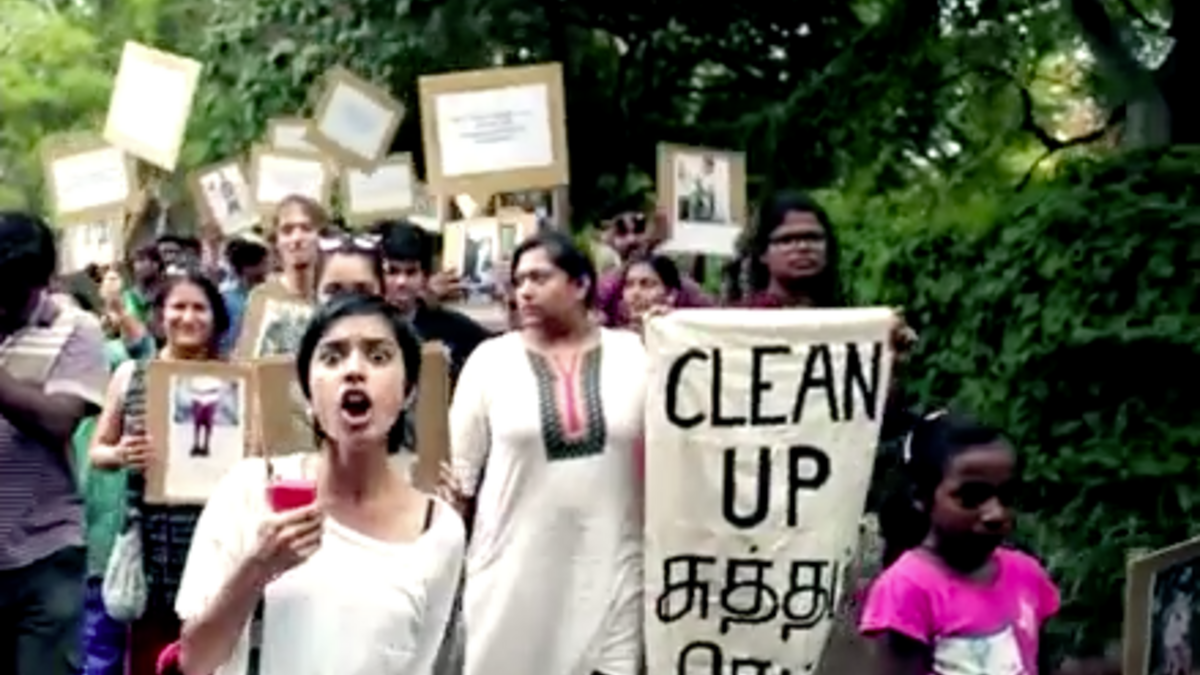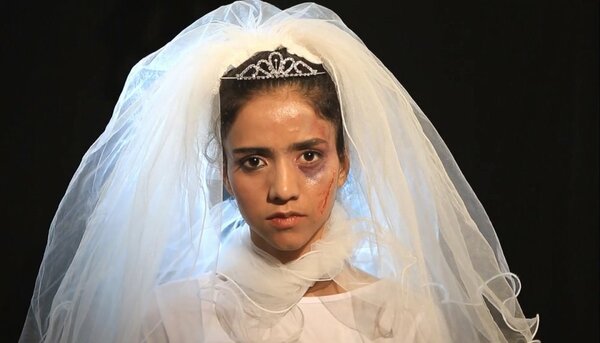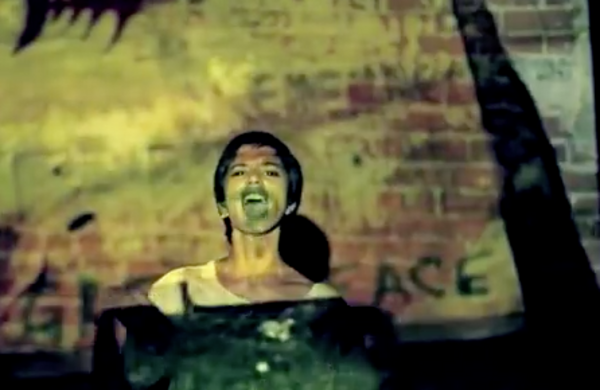Sonita

directed by Rokhsareh Ghaem Maghami
Rapping defiantly about her experiences in a sexist and repressive environment, Sonita is an activist for the ages, her spirit, attitude and resolve captured in this powerful documentary...


In the film Sonita, Irani filmmaker Rokhsareh Ghaem Maghami asks her heroine– Afghani refugee Sonita Alizadeh, eyes thick with Kajal, and a sweet, gentle smile–to remove her headscarf for the camera. "No," she says.
They are in her bedroom in Iran, and instead, Alizadeh switches off the only light in the room. In another scene, Alizadeh reaches for the camera, one skinny arm, frail fingers blackened at their tips–"now it’s my turn to ask you some questions."
It is a certain shift, and one that repeats itself through several gestures because, above everything else, Alizadeh has vision, and she alone is the craftsman of her story.
While setting up the scene for her music video for instance, she sees it all in a rush, one single, unbroken narrative – precise, and sharp. Alizadeh paints bruises onto her face and raps about her body, all female bodies: the body as political resistance. She puts on a white wedding dress as black tears leak down her face.
"Now that’s some toxic shit," runs the chorus of Indian rapper and activist Sofia Ashraf’s ‘Kodaikanal Won’t', about the mercury pollution caused by a Unilever subsidiary, Dow Chemicals. Ashraf, skinny like Alizadeh, with the same relentless and perfectly-timed delivery, raps on location; moodily in an empty compartment of a local train; among dancing children upon a river bank; and amidst a group march across Kodaikanal’s streets, its members chanting in unison, "Unilever, clean up your mess." Set to the tune of Nicki Minaj’s ‘Anaconda’, Ashraf’s back-up Bharathnatyam dancers are graceful and strong, with quick-bending elbows and fast-curving feet–it’s all in the eyes you see, in the twist of their thumbs.
What links the two rappers is tenuous at best, as they are two individual and entirely different artists, united solely by the medium they have chosen to use. But to do so is an effort to show solidarity, particularly at a time when the countries of their sub-continent do not do so with each other easily. Solidarity is a necessarily entangled premise, and as the architect of this intention, it is perhaps my attempt at starting a conversation…

But first, to set the scene: it is almost the end of 2016 and several skeptics, part-time nationalists, here in India, very much like to say: we are at the brink of another war with Pakistan. On the night of September 18, 2016, troops from the Pakistan-Occupied-Kashmir (PoK) discretely entered an Indian army camp in Uri, a village in the Indian-Occupied-Kashmir (a phrase not often used by the Indian media, which would prefer to say ‘Indian-Administered-Kashmir’ instead), carrying hand grenades and claiming the lives of 19 Indian soldiers. To retaliate, the Indian army conducted a similar attack onto a Pakistani army camp along the LoC (Line-of-Control, the military control line between the two halves of occupied Kashmir).
The situation has since been tense, and quickly picked up by extremist right-wing groups, such as the infamous Maharahstrian Navnirmana Sena (MNS), who declared that all Pakistani artists living and working in India should not only be banned from further participation, but have a mere 48 hours to leave the country. They then threatened the boycott of an upcoming Bollywood film, ‘Ae Dil He Mushkil’, since it had in it a Pakistani actor, Fawad Khan (in a relatively small, supporting role). A hollow request to some, but with real consequences nevertheless, inciting a reaction, in fact a desperate plea, from one of the most powerful filmmakers in the industry: the film’s director Karan Johar. Faced with the consequence of a flop opening weekend, or worse, for the entire run of the film, Johar released an awkward apology video, à la Johnny Depp and Amber Heard, accompanied by a large monetary “donation” to the Indian army fund.
"I salute the Indian army," Johar says in the video, "for me, my country comes first." And, "Of course I will not engage with talent from the neighbouring country given the circumstance."
Shortly after, Indian film actor Randeep Hooda tweeted: “We are trying to isolate Pakistan economically and diplomatically so cultural isolation must follow #BanPakArtists #IndiaComesFirst #India.”
Cultural isolation must follow.
A dangerous thought, but one that recurs nevertheless. Some bought tickets to the opening night of the film, to show solidarity, to show that they remain unaffected by right-wing bullying tactics–ultimately disappointed to find a vapid storyline and a haphazard plot. An entirely apolitical film thus received a political charge, significant enough to result in Pakistani actors silently, and without protest, leaving the country.

At a crucial point in the film Sonita, director (and friend) Maghami decides to loan Alizadeh $2,000 in order to buy herself time from her family, who would rather have her return to Afghanistan and be married.
Alizadeh continues to rap, gaining popularity on YouTube, because of which, rather heartbreakingly, the Iranian refugee centre where she works and receives therapy can no longer treat her, although it is clear they love her.
It is illegal for women to sing, and illegal still, for the centre to condone her fame.
Where methods of showing support, of showing solidarity exist – they must be exercised with caution in order to remain. Where solidarity is in fact what is at stake, politics blurs into the popular, and it is upon culture where the dialogue can easily take place. Ashraf is a striking figure in her short hair, white-rimmed aviators and a red cotton sari – using her arms to enunciate her politics, vivid and articulate. Alizadeh cries, she claws at her face, she is young, she is torn, and she is powerful. Although the two might not meet along familiar lines, they exist upon a spectrum, and hopefully one that does not remain so compartmented, and so fundamentally fractured.
Cultural solidarity must follow.